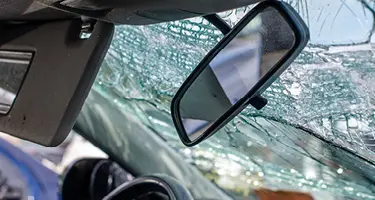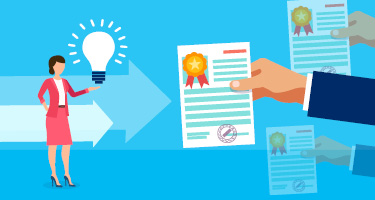This article was originally published on 9/23/21 and was updated on 2/14/22.
All major events involve a variety of complex legal issues—particularly those, such as the Olympic and Paralympic Games, with prestige and global reach. There are sponsorship deals to make, broadcast rights to negotiate, health and safety issues to consider and third-party supplier contracts to ink. There are also athlete-specific legal issues, which are generally more controversial: athlete selection, qualification, classifications (for para-athletes) and doping (of both athletes and animals).
In elite sport, the difference between winning and finishing second can be almost unfathomably small. Anna Meares, an Olympic gold medallist in track cycling, has depicted that difference as a distance equivalent to the thickness of a pencil line on a piece of paper. Ato Boldon, a former track-and-field athlete from Trinidad and four-time Olympic medal winner, explained that during the 1996 Summer Olympics in Atlanta (held at a time when the starting gun was broadcast not from behind the athletes but from just inside the track), he tried to guess precisely when the gun would go off. Why? Because the time it would take the sound to travel to him in lane eight was long enough to separate gold from silver, silver from bronze or bronze from no medal at all.
These fractions of a second can make all the difference to spectacular athletes who have dedicated their lives to a sport they excel at and love. This perhaps helps explain why cheating and doping are so prevalent in elite sport. The perpetrator isn’t always an athlete. Sometimes the behaviour of a country affects the eligibility of its athletes. Two key examples arose during the Tokyo 2020 Olympic and Paralympic Games.
The most memorable recent doping controversy involves Russia. It did not compete as a country in the Tokyo Games. No Russian flag flew; no Russian national anthem played. There were, however, more than 300 Russian athletes representing the Russian Olympic Committee (ROC). Tchaikovsky’s Piano Concerto No. 1 played in place of the anthem; the white ROC flag—depicting the Olympic rings with a stylized flame in the colours of the Russian flag—was flown instead.
Why did these athletes not compete for Russia? In late 2019, the World Anti-Doping Agency, the global body established in 1999 to combat doping in sport, banned Russia from competing in global athletic events for four years, citing its organized, systematic framework of doping and coverups. Those practices, according to the agency, included the “deliberate, sophisticated and brazen alterations, amendments and deletions” of analytical data carried out to “remove or obfuscate evidence of improper activities carried out by the Moscow Laboratory” (that is, the laboratory that carried out the test). It also noted state-sponsored “sample swapping” in which Russian athletes’ urine-sample bottles were opened and replaced with clean urine, and the “disappearing positive methodology,” whereby if an athlete’s sample returned an “Adverse Analytical Finding”—that is, detected the presence of a prohibited substance—the sample would be “saved” or “quarantined.” No further action would be taken, and the sample would be reported as negative.
In 2020, the Court of Arbitration for Sport (CAS) reduced Russia’s ban to two years, permitting Russian athletes who weren’t caught up in the doping scheme to compete as “neutral athletes” required to perform in neutral uniforms and prohibited from displaying Russia’s flag or playing its anthem. CAS also imposed other sanctions, including a prohibition on Russia’s hosting or bidding for the right to host the Olympic Games, the Paralympic Games or any world championships during the two penalty years.
The perpetrator isn’t always an athlete. Sometimes the behaviour of a country affects the eligibility of its athletes."
Although the country itself was banned for that duration, athletes who weren’t accused of misconduct or tainted by the scandal were not similarly restricted. This may seem like a strange outcome, but the case concerned Russia’s noncompliance, not that of individual athletes. As CAS put it, it would be “excessively burdensome and inappropriate in the circumstances to require Russian Athletes and Athlete Support Personnel to bear the onus of proving they were not affected in any way by the manipulation of the . . . Data . . . nevertheless [CAS] considers it necessary and appropriate to impose requirements for Russian Athletes and Athlete Support Personnel to compete in a neutral capacity” with the exception of those subject to suspension, restriction, condition or exclusion from participating.
The second recent example of countries’ behaviour affecting their athletes concerns the banning of 20 track-and-field athletes from competing in the Tokyo Olympic and Paralympic Games because their nations failed to meet anti-doping testing requirements . Athletes subject to the ban were from Belarus, Ethiopia, Kenya, Morocco, Nigeria and Ukraine and were prohibited by the Athletics Integrity Unit (AIU) under Rule 15 of the World Athletics Anti-Doping Rules.
The AIU was founded by the International Association of Athletics Federations in 2017 as an independent international body responsible for the management of integrity programs, including, but not limited to, anti- doping programs for sports worldwide. Rule 15 categorizes national federations based on the risk they pose for doping. The athletes who were banned were all from “Category A” countries—those deemed the highest risk for doping violations.
Category A countries must meet more stringent anti-doping requirements before their athletes can compete at international events: Contestants must submit to a minimum of three out-of-competition drug tests no fewer than three weeks apart in the ten months leading up to a major event such as the Olympic or Paralympic Games. Only upon passing are they then able to compete. If sufficient testing is not carried out or a violation is detected, the athlete is ineligible.
The athletes prohibited from competing in Tokyo were banned because the testing requirements set out in Rule 15 were not met by their countries, not necessarily because they had returned an adverse test. Although the AIU acknowledged that there had been significant achievements by Category A countries in terms of the number of out-of-competition tests they took, those achievements were not enough to satisfy the requirements in Rule 15 and the failures of the testing regimes had significant effects on their athletes.
Howard Rapke is a partner at Holding Redlich and the National Head of the dispute resolution and litigation practice. Howard has more than 28 years’ commercial dispute experience and is regularly engaged in complex commercial litigation, significant white collar criminal investigations and prosecutions involving a wide range of commercial criminal matters, regulatory investigations and large scale inquiries, including Royal Commissions. He also advises on class action litigation in both the Federal Court of Australia and Supreme Court of Victoria. Howard is also a member of the Sport Integrity Australia Independent Investigator’s Panel.




























